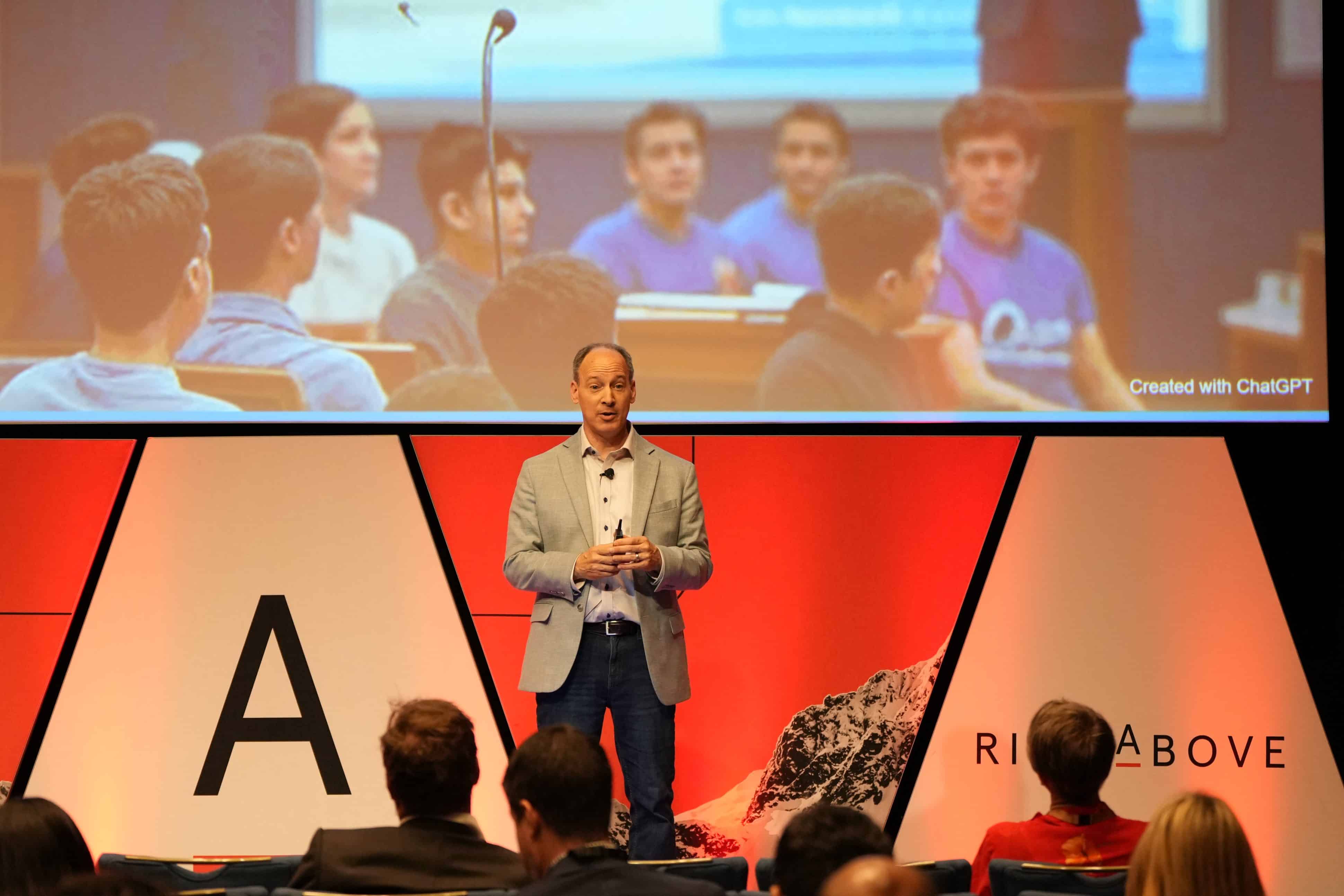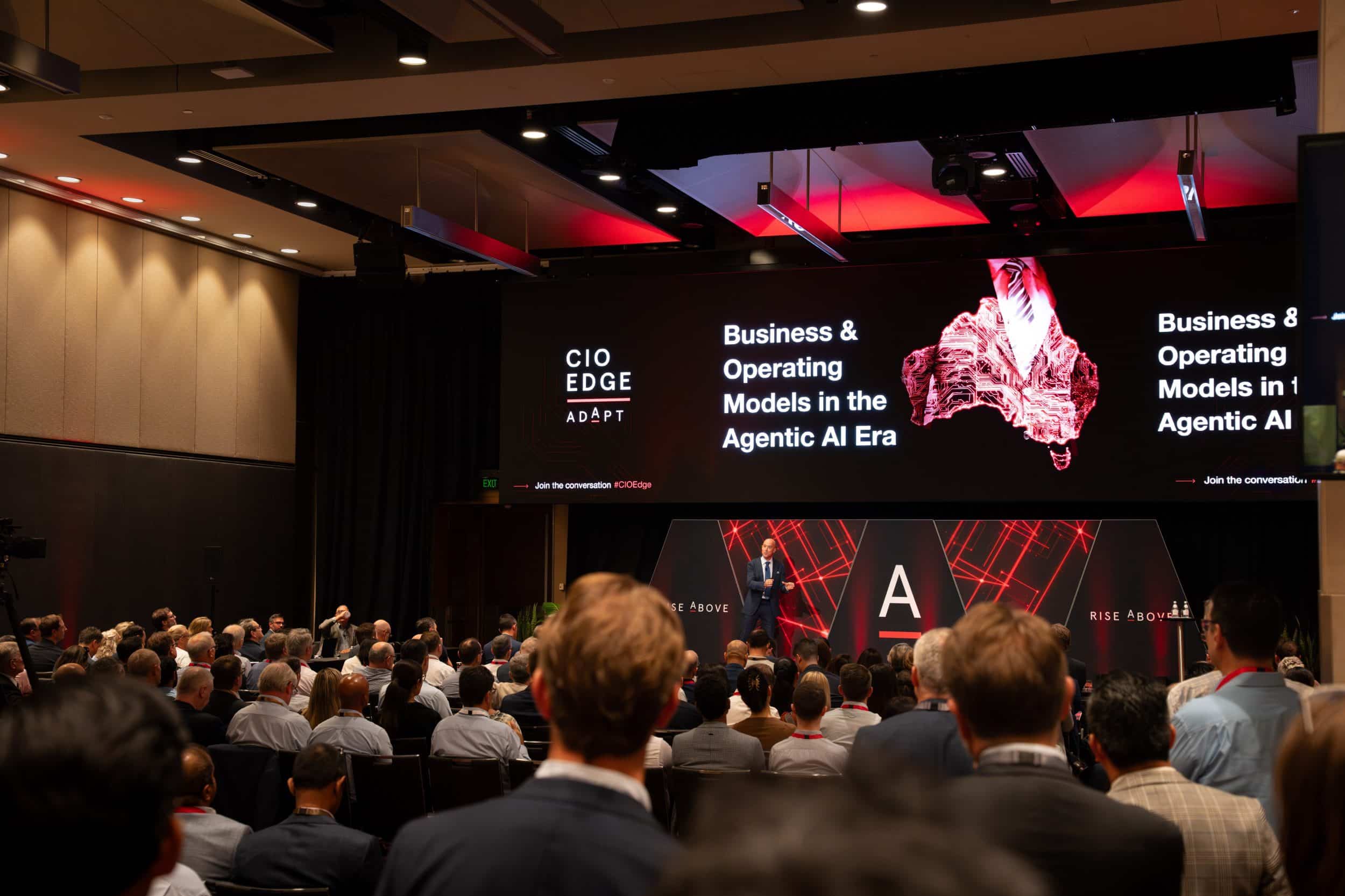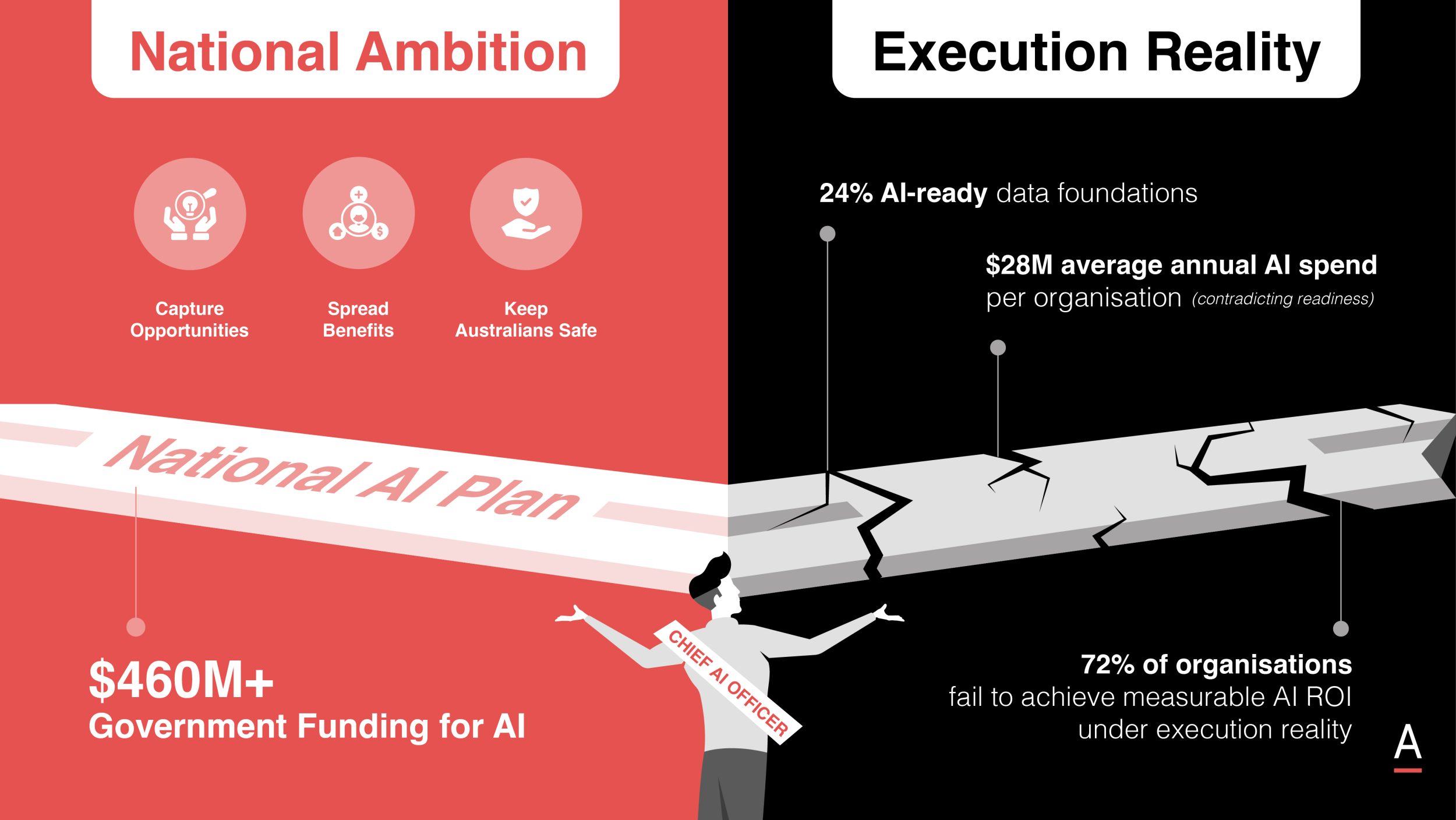Alan Jacobson, Chief Data & Analytics Officer at Alteryx, explained how real AI success comes from business alignment, education, and ROI tracking at Data & AI Edge.
AI’s potential means little without proof, purpose, and business fluency.
In his conversations with hundreds of executives annually, Alan warns that hype alone won’t deliver ROI.
His playbook for meaningful adoption echoes ADAPT’s survey of 200 Australian CIOs: while 70% plan to increase investment in generative AI, only 25% have automated workflows in place.
There’s a clear gap between ambition and execution.
Alan notes that while nearly every enterprise has one live AI use case, few can demonstrate consistent ROI across ten or more, mirroring ADAPT’s finding that just 13% of CIOs consider their AI deployments successful.
One core challenge, backed by both Alan’s experience and ADAPT data, is measuring sustained value.
Initial AI projects are often easy to justify, but 50% of CIOs struggle to track long-term benefits, and 40% of CFOs remain sceptical of realised value from tech investments.
This pressure forces data leaders to move beyond simple prompt training toward practical, organisation-wide education and validation.
Alan draws a parallel with early dashboard adoption, where success came not from the dashboards themselves but from teaching teams how to use them meaningfully.
The same principle applies to AI: tools alone don’t drive impact without structured learning and sustained engagement.
His playbook starts in the shallow end: low-risk, high-impact use cases like procurement optimisation or summarising financial news for advisors.
The most successful organisations, he argues, aren’t the ones with the most engineers, but those who align AI initiatives with real business problems, track impact, and educate their teams.
Key takeaways:
- AI success depends on leadership, not just technology: Successful AI initiatives are not about having more data scientists or better tools, but about leadership aligning teams around clear, measurable business outcomes; a point reinforced by the 87% of CIOs who say their AI efforts are still not delivering expected results.
- Proving AI’s long-term value is a major hurdle: 50% of CIOs struggle to measure ongoing AI benefits, and 40% of CFOs believe deployed technologies often fail to deliver expected value, underscoring the need for better ROI tracking and validation frameworks.
- Strategic alignment, not scale, drives success: Only 13% of CIOs consider their AI efforts successful, with winning organisations focusing on aligning AI with business goals and embedding it effectively, rather than relying solely on technical resources or executive ownership.





























